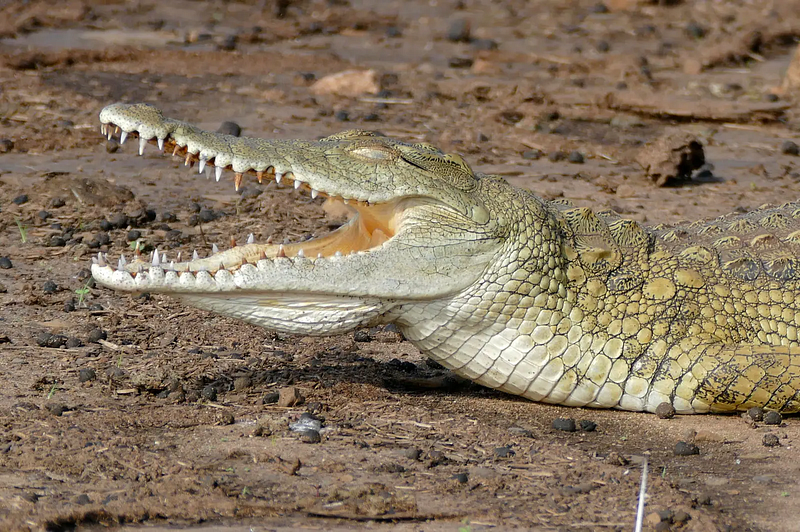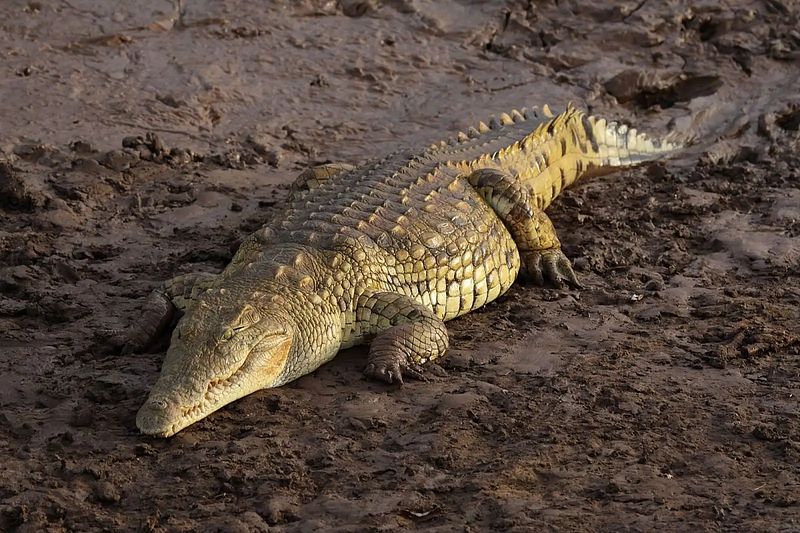# Crocodiles' Fascination with Human and Primate Infant Cries
Written on
Chapter 1: Understanding Crocodilian Responses
Crocodiles possess an intriguing ability to detect the cries of both human and primate infants. These vocalizations, often signaling distress, serve as a method of alerting others, even from considerable distances. Interestingly, experiments conducted with Nile crocodiles indicate a strong attraction to the cries of infants from species such as humans, bonobos, and chimpanzees. This suggests that crocodiles are remarkably responsive to the distress signals of young beings, even those not closely related to them.

Nile Crocodile (Crocodylus niloticus). Credit: Animalia Bio
The acoustic features that convey meaning in sound vary among species, yet crocodiles can interpret the intensity of distress calls. They seem particularly drawn to cries characterized by nonlinear acoustic properties. Humans often perceive pitch to gauge the level of distress in infant cries, but crocodiles show only moderate sensitivity to this aspect. Bonobo cries, which are higher in pitch and similar to human infant cries, also influence crocodilian responses. Research indicates that while crocodiles aren't especially attuned to human reproductive calls, they are keenly interested in stimuli indicating excitement, particularly those with nonlinear traits. Generally, humans can better comprehend higher-pitched cries as expressions of distress, although they sometimes misinterpret them due to pitch variations and cultural influences. Conversely, crocodiles do not focus on pitch, responding instead to sound characteristics without recognizing the source. Despite their acute hearing, crocodiles have limited ability to detect high-frequency sounds, which may explain their attraction to intense, excited cries from infants.

Nile Crocodile (Crocodylus niloticus). Credit: Animalia Bio
This raises the question of why crocodiles react to the cries of human infants. Adult crocodiles are drawn to the distress calls of their young, as both females and certain males engage in protective behaviors against threats. However, it is important to note that adult crocodiles don't always exhibit care for their offspring, with instances of cannibalism occurring. The distress sounds made by young crocodiles share similarities with those of human infants, featuring harmonic series that encompass a wide frequency range (between 500 and 6000 Hz) and exhibit modulation in frequency alongside nonlinear acoustic elements. The experiments demonstrated varied responses from both male and female crocodiles, with some swimming at the surface, others diving, and a few approaching the sound source cautiously. This suggests that the cries of human infants could evoke either a predatory instinct or a parental response in different crocodiles. The strong attraction of Nile crocodiles to human infant cries implies that these formidable predators may have historically posed a threat to our ancestors. Fossil evidence indicates that Nile crocodiles thrived in environments inhabited by early hominins, hinting that even ancient infants produced cries that captivated crocodiles.

Photo by Jessica Hearn on Unsplash
Overall, the research indicates that crocodiles exhibit selective responses to particular sound signals. For example, a black caiman mother may not respond to her offspring's calls when hurrying towards them, while young Nile crocodiles show interest in calls from other juveniles but ignore frog sounds. This highlights the intelligence of crocodiles; they can differentiate between sounds originating from animals and those produced by speakers. Thus, these reptiles are not only attracted to the cries of human infants but also to any distress signal. As opportunistic hunters, they are inherently predisposed to react to signals of distress or rescue. Since the crocodiles in the studies had no prior experience associating cries with human infants, their reactions to these sounds appear to be instinctual.
Chapter 2: Insights from Research
The first video titled "Nile Crocs Respond to Human and other Ape Cries?" explores the fascinating interactions between Nile crocodiles and the cries of various infant primates, shedding light on their auditory sensitivities and behavioral responses.
The second video, "Why Crocodiles React to Human Babies Crying," delves into the reasons behind crocodiles' attraction to the cries of human infants, revealing insights into their instinctual behaviors and evolutionary adaptations.